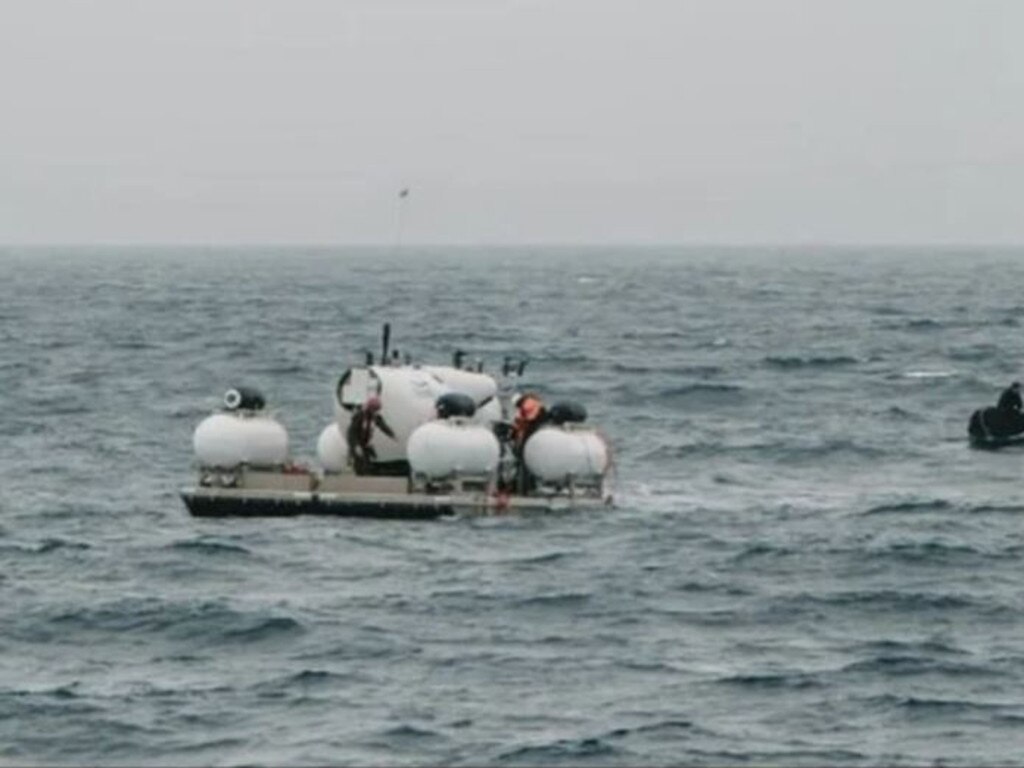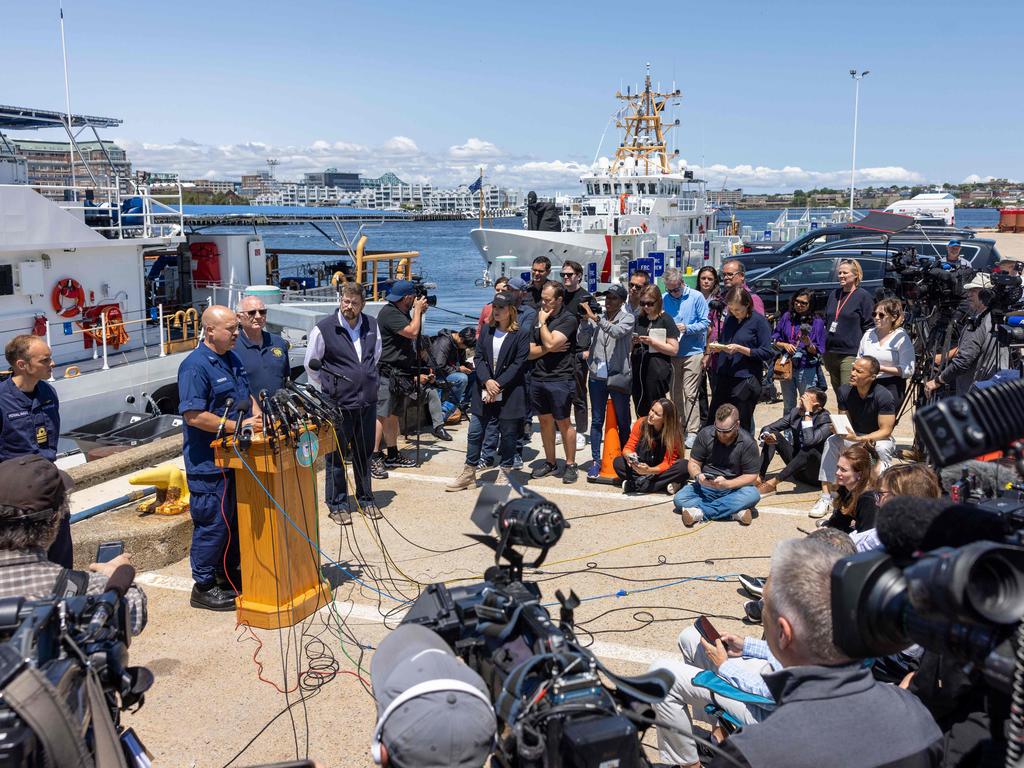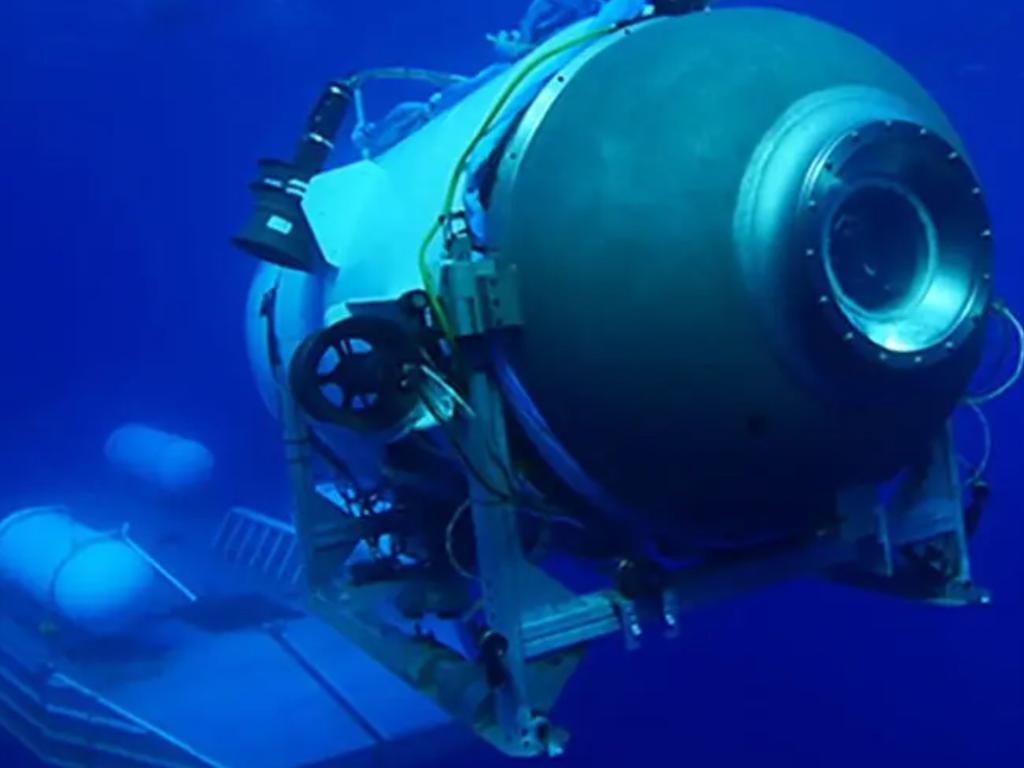US Navy detected Titan sub implosion with top secret acoustic system the day vessel went missing
The US Navy detected what it suspected may have been an implosion within hours of the Titan submersible descending into the ocean.
The US Navy detected what it suspected may have been an implosion within hours of the Titan submersible descending into the ocean to visit the Titanic wreckage.
A US defence official said the Navy began listening for the Titan immediately after the vessel lost communication with the mother ship, approximately an hour and 45 minutes into its mission Sunday morning.
The official said the Navy’s top secret acoustic detection system picked sounds that were consistent with either an explosion or an implosion near where the Titan was found on Thursday.
The Navy passed on that information to the Coast Guard which continued its search because the Navy did not consider the data to be definitive.
“While not definitive, this information was immediately shared with the Incident Commander to assist with the ongoing search and rescue mission,” the official said in a statement to Fox News Digital.
“If these reports are accurate, the acoustic data point is useful in light of the confirmation that we received today, but would not have been sufficient to suspend the search and rescue effort, only to possibly refine the search area,” said retired Vice Admiral Robert Murrett, a professor of practice at Syracuse University’s Maxwell School and deputy director of the Institute for Security Policy and Law.
The US Coast Guard confirmed earlier Thursday that a debris field found earlier in the day was the missing Titan submersible.
US Coast Guard Rear Admiral John Mauger told reporters that the debris was consistent with the “catastrophic loss of the pressure chamber.”
“On behalf of the U.S. Coast Guard and the entire unified command, I offer my deepest condolences to the families,” he said.
The Titan lost contact with its surface vessel, the Polar Prince, around one hour and 45 minutes into its dive Sunday morning, about 900 miles east of Cape Cod, Massachusetts, and around 400 miles southeast of St John‘s, in Canada’s Newfoundland.
Inside the vessel were OceanGate CEO Stockton Rush; British businessman turned adventurer Hamish Harding; father-and-son Shahzada and Suleman Dawood, who are members of one of Pakistan’s wealthiest families; and Paul-Henry Nargeolet, a former French navy officer and leading Titanic expert.
Rear Admiral John Mauger told reporters in Boston that analysis showed debris found on the sea floor, 1,600 feet (500 meters) from the bow of the Titanic, was consistent with an implosion of the sub’s pressure chamber.
“On behalf of the United States Coast Guard and the entire unified command, I offer my deepest condolences to the families,” Mauger said.
On board were British explorer Hamish Harding, French submarine expert Paul-Henri Nargeolet, Pakistani-British tycoon Shahzada Dawood and his son Suleman, and Stockton Rush, CEO of the sub’s operator OceanGate Expeditions.
OceanGate said its “hearts are with these five souls and every member of their families during this tragic time.” “These men were true explorers who shared a distinct spirit of adventure, and a deep passion for exploring and protecting the world’s oceans,” it said in a statement.


The Coast Guard announced earlier Thursday that an underwater robot had discovered a “debris field” in the search area.
Authorities said they later learned the pieces included the sub’s tail cone and front and back ends of its pressure hull.
Mauger said the Coast Guard could not be sure when or why the vessel imploded and declined to be drawn on whether remains of the men would be retrieved.
“This is an incredibly unforgiving environment down there on the sea floor,” he said.
The process of demobilising personnel and vessels from the scene would soon begin, but unmanned robots would continue operations on the seabed for now, Mauger added.
“We’ll collect as much information as we can,” he said.
The US military originally detected the likely implosion of the craft on secret underwater sound monitoring devices shortly after it went missing on Sunday, the Wall Street Journal reported Thursday.
“The US Navy conducted an analysis of acoustic data and detected an anomaly consistent with an implosion or explosion in the general vicinity of where the Titan submersible was operating when communications were lost,” an unnamed senior Navy official told the Journal.

OceanGate Expeditions charged $250,000 for a seat on the sub. In a 2018 lawsuit, its former director of marine operations raised concerns about the “experimental and untested design” of Titan.
The Titanic International Society said it could be time to replace manned missions to the wreck with autonomous machines.
“It is time to consider seriously whether human trips to Titanic’s wreck should end in the name of safety, with relatively little remaining to be learned from or about the wreck,” it said in a Facebook post.
“Crewed submersibles’ roles in surveying the wreck now can be assigned to autonomous underwater vehicles.”
This article originally appeared in Fox News and was reproduced with permission



